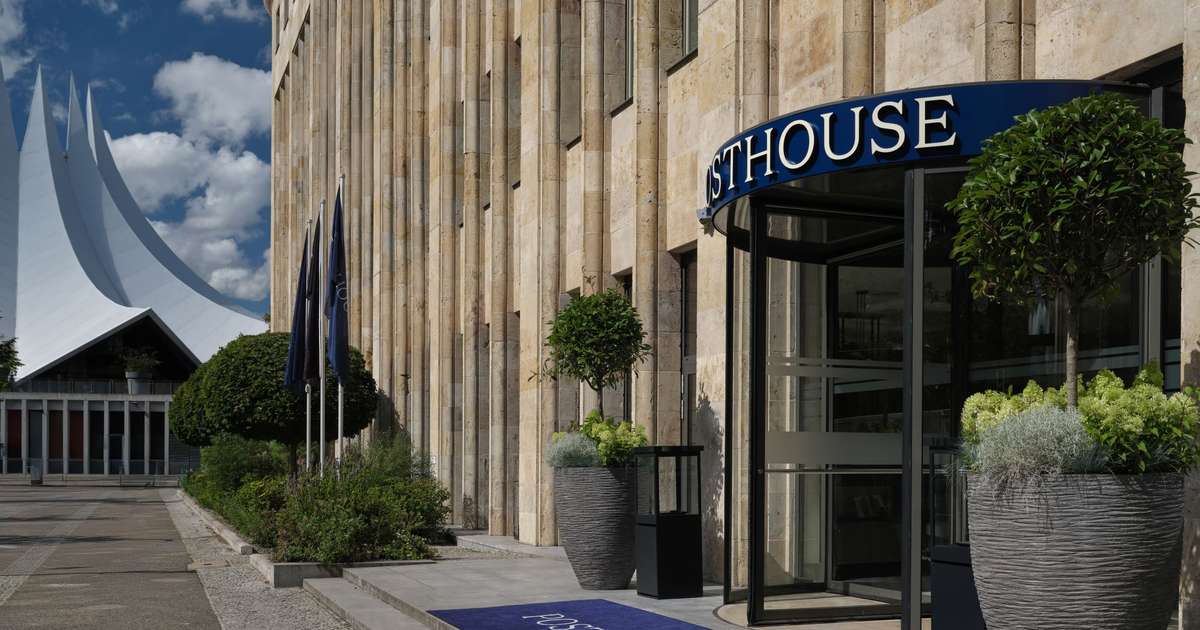
The way hotels sell their rooms has come a long way. From basic reservation systems to sophisticated guest preference tracking, to the rise of OTAs, and the subsequent shift towards a ‘direct-first’ mindset amongst independent hoteliers, the industry has continuously evolved to keep up with technology and ever-changing consumer trends.
Now, the question is: what’s next? As the digital landscape continues to evolve, how can hotels build on this progress, continue growing their direct business, and create even more meaningful guest experiences? Keep reading this article to find out.
The Rise of OTAs: Global Reach, But at a Cost
OTAs like Booking and Expedia revolutionized how travelers book hotels. They became the go-to platforms for guests because they provided an easy way to compare prices and find the best deals. This convenience turned them into the “search engines” of hotel bookings, filling a gap that traditional search engines couldn’t handle efficiently.
For hotels, OTAs provided exposure and bookings, but at a steep price. Commissions ranged from 15% to 30%, and hotels lost control over guest relationships. By 2016, OTAs accounted for nearly half of all online hotel bookings in the U.S. Their dominance was solidified through aggressive marketing, mobile apps, and loyalty programs. According to STR & Kalibri Labs as of 2017, OTAs were responsible for 49% of online hotel bookings.
The Push for Direct Bookings
Hotels soon realized they needed to reclaim control. Large chains launched “Book Direct” campaigns, offering perks like lower rates, free Wi-Fi, and exclusive experiences. Meanwhile, improvements in technology—such as user-friendly booking engines, personalized recommendations, and mobile-optimized websites—gave hotels new tools to compete.
By the 2010s, independent hotels followed this shift, investing in technology to facilitate and grow direct bookings. They too began leveraging tools and strategies to make their direct channels more attractive, efficient, and profitable. This approach not only improved financial performance but also allowed independent hotels and hotel collections to compete with larger players, often at higher ADRs due to the added value of booking direct. In fact, many independent hotels within GuestCentric’s portfolio now achieve a strong direct revenue share, with some exceeding 50% of overall revenue.
Meta-search platforms like Google Hotel Ads and Trivago also provided opportunities for hotels to fight back, allowing them to display direct prices alongside OTAs. According to Kalibri Labs, direct bookings can deliver 9–20% higher profit margins than OTA bookings, making them a crucial revenue stream. Hotels have since increased direct bookings by 15–20% after launching targeted “Book Direct” campaigns (Source: Kalibri Labs, 2019).
The Shift to Mobile-First Experiences
The shift to mobile has transformed booking behavior. Today, over 50% of all hotel bookings happen on mobile devices, especially among younger travelers. Social media now plays a direct role in influencing where people stay, with platforms like Instagram and TikTok driving demand. In 2023, 65% of same-day hotel bookings were made on mobile devices, according to Hospitality Technology.
As the landscape continues to evolve, hotels must prioritize their digital presence and optimize their strategies for direct bookings. Here’s how they can do it in 2025:
10 Ways Hotels Can Increase Direct Bookings in 2025
1. Know Your Audience with Analytics
Reality: 80% of consumers are more likely to make a purchase when brands offer personalized experiences. (Source: Epsilon)
Action: Understanding where guests are coming from, their preferences, and booking behaviors is essential. Use analytics tools to track visitor sources, demographics, and website interactions to tailor marketing efforts effectively.
2. Optimize for Mobile
Reality: 53% of mobile site visitors will abandon a page if it takes longer than 3 seconds to load. (Source: Google)
Action: With most bookings happening on mobile devices, hotels must ensure their websites are mobile-first. This includes fast load times, seamless navigation, and an easy-to-use booking engine.
3. Personalize the Experience at Scale
Reality: 71% of consumers expect companies to deliver personalized interactions, and 76% get frustrated when they don’t. (Source: McKinsey & Company)
Action: AI-driven personalization can anticipate guest preferences based on past behavior. Hotels can offer customized room recommendations, tailored packages, and dynamic pricing that aligns with guest needs.
4. Make Payments Seamless
Reality: 63% of travelers say having a range of payment options, including digital wallets and Buy Now Pay Later, influences their decision to book directly. (Source: Worldpay Global Payments Report)
Action: Offering multiple payment options, including digital wallets, Buy Now Pay Later (BNPL), and one-click checkouts, removes barriers in the booking process and reduces drop-offs.
5. Use AI to Enhance Content & Engagement
Reality: 70% of consumers are willing to pay more for a personalized experience, which can be facilitated by AI-driven content and chatbots. (Source: PwC)
Action: AI can optimize room descriptions, suggest upgrades, and power chatbots for real-time assistance. Intelligent automation ensures potential guests get the information they need instantly.
6. Monitor and Maintain Rate Parity
Reality: 83% of travelers compare prices on multiple platforms before booking, emphasizing the importance of competitive pricing. (Source: Phocuswright)
Action: Guests compare prices before booking. Hotels should use Google Meta and other tools to ensure their direct rates are competitive or offer exclusive perks to incentivize booking direct.
7. Tap into New Booking Channels
Reality: 45% of travelers discover destinations and travel services via social media platforms, highlighting the importance of exploring new booking channels. (Source: Skyscanner)
Action: Beyond OTAs and direct websites, hotels should explore emerging platforms like social media bookings, messaging apps, and influencer collaborations to reach new audiences.
8. Offer Flexible Booking & Cancellation Policies
Reality: 70% of travelers prefer flexible booking options, including refundable rates and easy cancellations. (Source: Booking.com)
Action: Travelers value flexibility. Offering refundable rates, easy modifications, and transparent policies can reduce booking hesitation and encourage direct reservations.
9. Ensure Speed & Efficiency During Booking
Reality: 1-second delay in page load time can lead to a 7% reduction in conversions, emphasizing the importance of speed during booking. (Source: Visual Website Optimizer)
Action: A slow booking process leads to drop-offs. Hotels must minimize form fields, enable guest profiles for faster checkouts, and ensure pages load quickly.
10. Promote Experience-Led Booking Options
Reality: 65% of consumers are more likely to book a trip if they can customize their experience, such as adding activities and curated packages. (Source: Expedia Group)
Action: Guests want more than just a room—they want an experience. Make it easy to customize stays by offering room attributes, add-ons (spa, dining, tours), and curated packages that cater to different traveler segments.
The Future of Direct Bookings
Looking ahead, the future of direct bookings is undeniably mobile. With 53% of consumers shopping on mobile devices—and 73% of those being Gen Z (Hubspot) —the shift is already underway. By 2025, Gen Z represents the majority of online shoppers, and studies show they tend to book instantly after being inspired by content on social media. This means hotels must ensure their booking engines are optimized for mobile and aligned with the platforms and behaviors of these emerging travelers.
While the strategies discussed above provide a strong foundation, success in the evolving digital landscape requires constant fine-tuning. Hotels must be ready to adapt to market changes as they arise, ensuring their booking systems are always optimized for direct reservations.
About GuestCentric
GuestCentric is a leading provider of cloud-based digital marketing software and services that help extraordinary hoteliers promote their brand, drive direct bookings and connect with customers on all digital platforms. GuestCentric’s all-in-one platform provides hotels with the only unified solution for managing their guests’ online journey: award-winning, high impact websites; an integrated, easy-to-use booking engine; social media marketing and publishing tools; a GDS chain code and a channel manager to offer rooms on Amadeus, Booking.com, Expedia, Galileo, Google, Sabre, TripAdvisor and hundreds of other channels. GuestCentric is a proud provider of solutions that maximize direct bookings to hotel groups and independent hotels from collections such as Design Hotels, Great Hotels of the World, Leading Hotels of the World, Relais & Chateaux, Small Luxury Hotels and Small Danish Hotels. GuestCentric is featured on Skift Travel Tech 250, a list of the top 250 travel tech companies shaping the modern-day travel experience.
Melissa Rodrigues
Content Manager
+35 196 157 3854
GuestCentric Systems
View source

